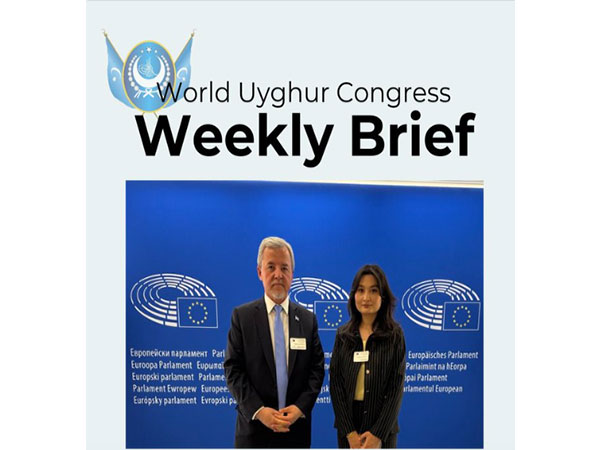According to a May 19, 2025 report from ANI News, filed from Munich, the World Uyghur Congress (WUC) has released its latest weekly briefing, highlighting ongoing global advocacy efforts aimed at bringing international attention to the severe human rights crisis facing the Uyghur people.
The report outlines a series of recent initiatives, including WUC’s participation in the Unrepresented Nations and Peoples Organization (UNPO) conference in Madeira, titled “Re-imagining Self-Determination.” As part of the UNPO Presidency, the WUC reiterated its commitment to defending the rights of stateless and marginalized peoples, with a particular focus on the Uyghur community's plight.
Additionally, the WUC conducted a diplomatic mission to Brussels ahead of the EU–China Human Rights Dialogue. The delegation, led by WUC President Turgunjan Alawdun and Vice President Zumretay Arkin, met with European Commission officials to address the ongoing genocide in East Turkistan (known officially as Xinjiang). They presented case-specific evidence and systemic patterns of abuses committed by Chinese authorities.
In Brussels, the WUC delegation also attended the European Parliament conference titled “Damming Tibet: The Environmental, Human and Geopolitical Cost of China’s Hydropower Ambitions.” The Congress drew attention to the environmental destruction in Tibet and East Turkistan, alongside the forced displacement of Uyghur farming communities caused by large-scale Chinese development projects.
The report also noted that the WUC's international advocacy will intensify in the lead-up to the 3rd East Turkistan Uyghur Summit. A major feature of the summit will be the official launch of “Unbroke: One Uyghur’s Fight for Freedom” by Rushan Abbas—a deeply personal account of resistance and survival under Chinese state oppression.
In East Turkistan, the Chinese government has reportedly detained large numbers of Uyghur Muslims in what it calls “re-education camps.” However, survivor testimonies and international investigations have revealed systematic abuses, including forced labor, torture, sterilization, and religious repression.
Uyghur cultural and religious life continues to be heavily targeted. Mosques have been demolished, religious practices are restricted, and the use of the Uyghur language is discouraged. The region is saturated with surveillance technologies such as facial recognition and biometric monitoring.
Despite Beijing’s denials—framing its actions as counter-terrorism measures—numerous governments and human rights organizations have declared China’s policies against the Uyghurs to constitute crimes against humanity or genocide.

